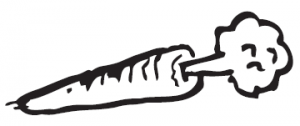Climate change in Washington State has long been a divisive issue cutting deeply across partisan lines. Debates rage over the cost of fuels, the growth of clean energy, and how we can distribute the benefits of an ever-cleaner economy most equitably.
Emerging from this divide, however, is a new front. Last year, the legislature considered SB 5947, which showed that we can achieve bipartisan cooperation on addressing climate change through a key sector: agriculture.
Modern agriculture accounts for nine percent of nationwide emissions, and our farmers are directly impacted by climate-related events—such as heat waves, fires, and droughts. Thus, improving sustainable farming practices can not only help our farmers become resilient in the face of a changing climate, they can also be an essential part of the solution.
SB 5947 would create a grant program for sustainable farms and field practices so that farmers are able to adopt carbon-reducing and sequestration methods. The grants created would reward reducing carbon emissions generated through farming and ranch processes from fertilizers to fuels; reward adopting regenerative farming practices, like no-till, cover-cropping, manure and compost, and biochar additions; and reward agroforestry which is the addition of perennial trees and shrubs that increase carbon sequestration on agricultural and ranch settings.
Led by Senators Schoesler (R) and McCoy (D), SB 5947 is one of the first and only climate bills to be introduced with equal numbers of Republicans and Democrats, 16 in total. But it isn’t only political leaders supporting the sustainable farm and field bill. Many organizations back it including: Carbon Washington, WA Association of Conservation Districts, American Farmland Trust, Tulalip Tribe, PCC Community Markets, The Nature Conservancy and more.
Despite bipartisan support, the bill stalled last year when committee Chair Brian Blake declined to advance the bill, in part due to objections from the Farm Bureau. The Farm Bureau’s opposition was surprising given the outwelling of support from actual farmers testifying in favor of the bill.
Although Sam Hunt from the 22nd legislative district did vote for the proposal, there are others in the 2nd, 20th and 22nd and 35th who did not. To help increase the likelihood of passage next year, calls from those of you who live in one of those districts can help push this over the line.
To ensure we pass the bill in 2020, we are launching a campaign focused on cultivating more interest among farmers and rural communities. We want to strengthen the bill and represent the people of Washington by collecting input from organizations and communities across the state for the 2020 legislative session. By working together, we will be able to secure a sustainable future that benefits our state and our nation.
Kyle Murphy is Executive Director of CarbonWA. He can be reached at kyle@carbonwa.org or 360-704-0484.

Be First to Comment